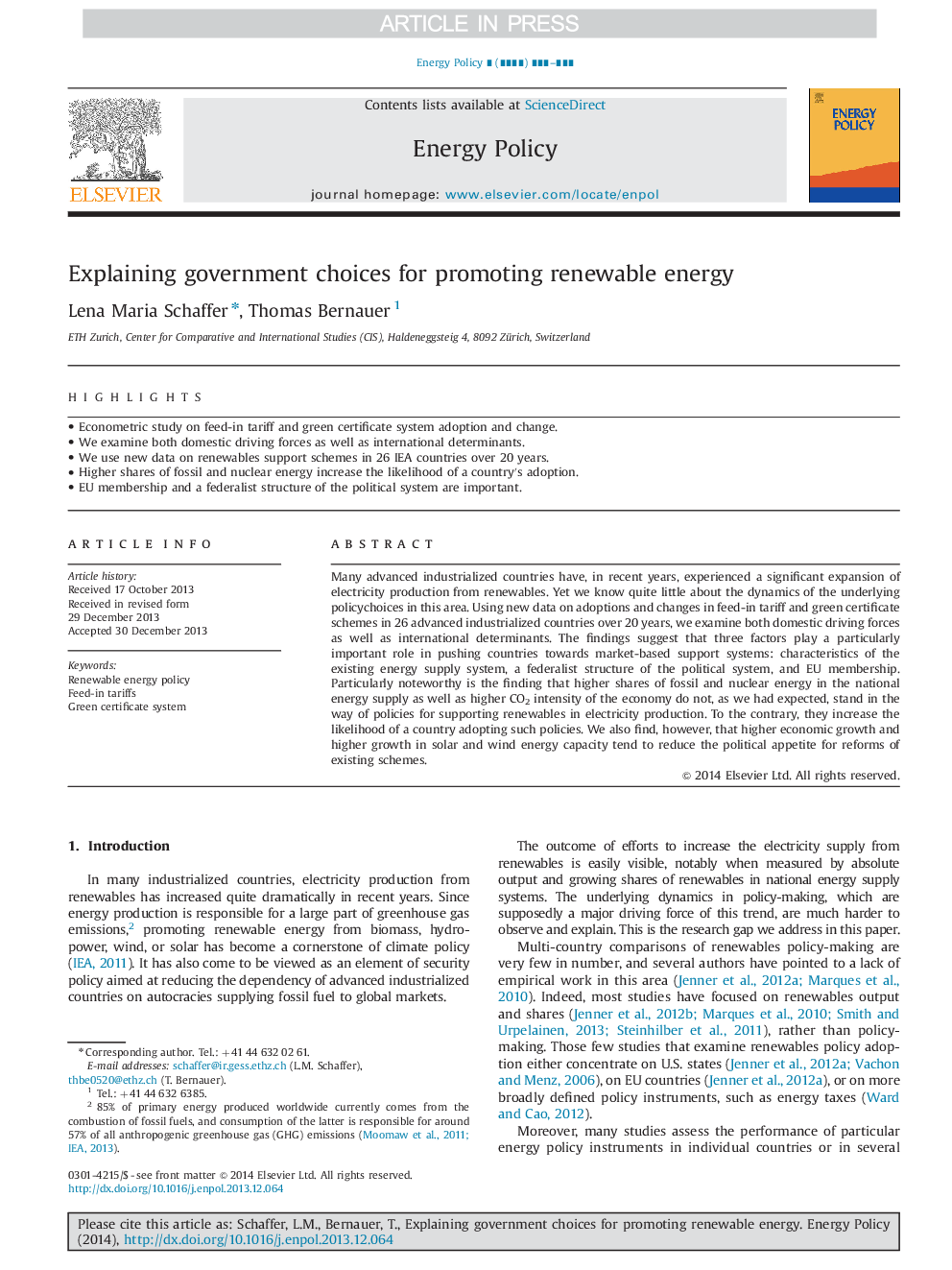| Article ID | Journal | Published Year | Pages | File Type |
|---|---|---|---|---|
| 7402115 | Energy Policy | 2014 | 13 Pages |
Abstract
Many advanced industrialized countries have, in recent years, experienced a significant expansion of electricity production from renewables. Yet we know quite little about the dynamics of the underlying policychoices in this area. Using new data on adoptions and changes in feed-in tariff and green certificate schemes in 26 advanced industrialized countries over 20 years, we examine both domestic driving forces as well as international determinants. The findings suggest that three factors play a particularly important role in pushing countries towards market-based support systems: characteristics of the existing energy supply system, a federalist structure of the political system, and EU membership. Particularly noteworthy is the finding that higher shares of fossil and nuclear energy in the national energy supply as well as higher CO2 intensity of the economy do not, as we had expected, stand in the way of policies for supporting renewables in electricity production. To the contrary, they increase the likelihood of a country adopting such policies. We also find, however, that higher economic growth and higher growth in solar and wind energy capacity tend to reduce the political appetite for reforms of existing schemes.
Related Topics
Physical Sciences and Engineering
Energy
Energy Engineering and Power Technology
Authors
Lena Maria Schaffer, Thomas Bernauer,
